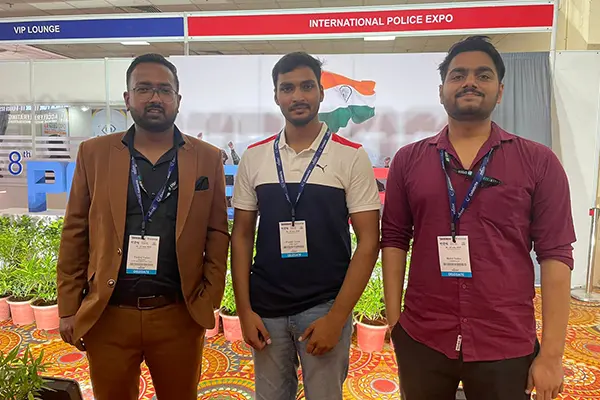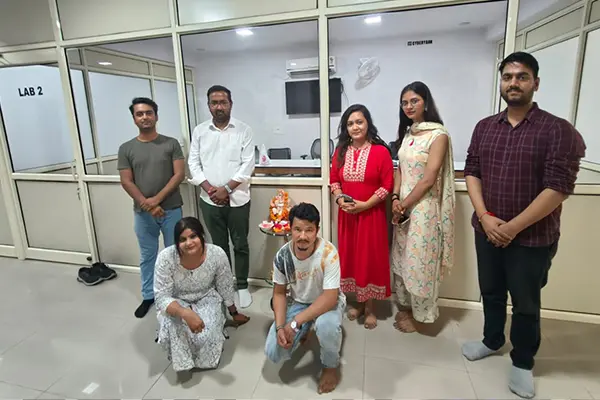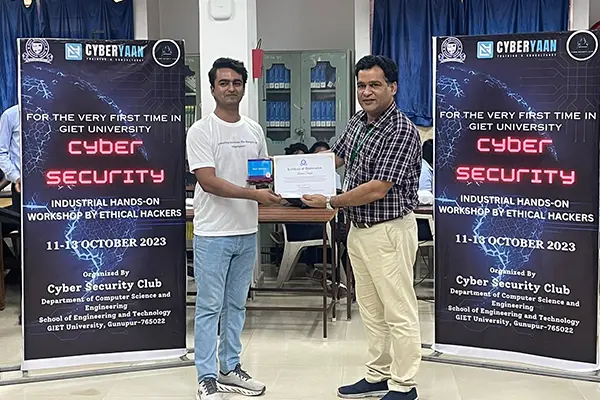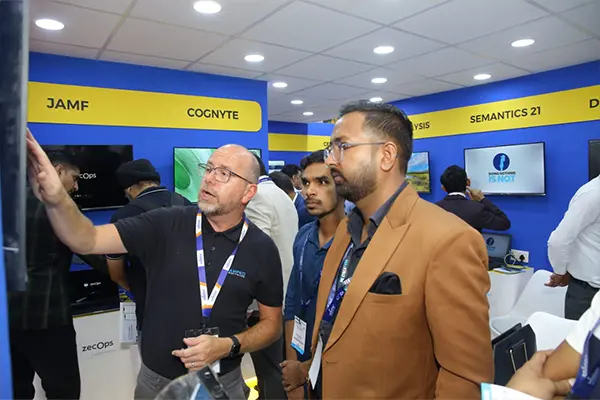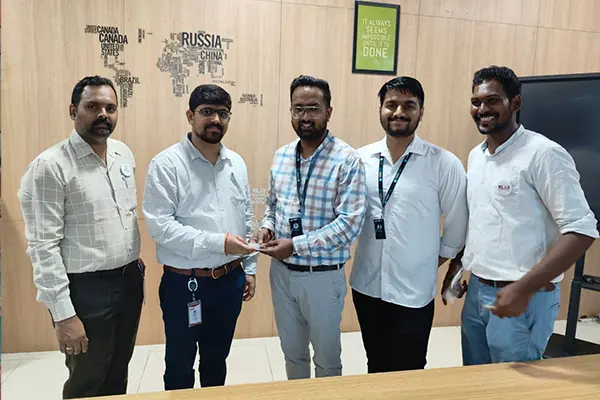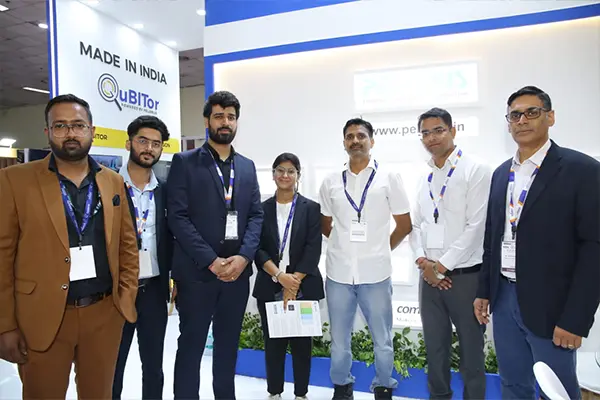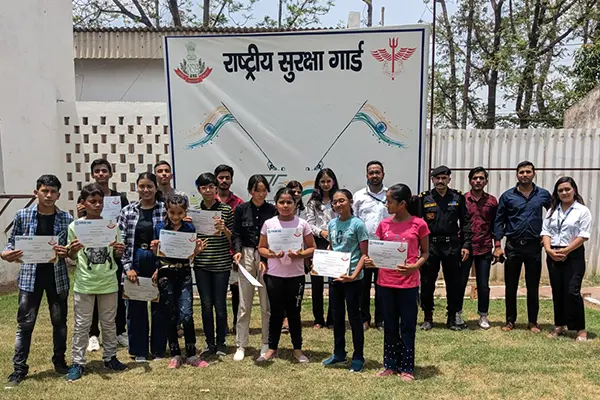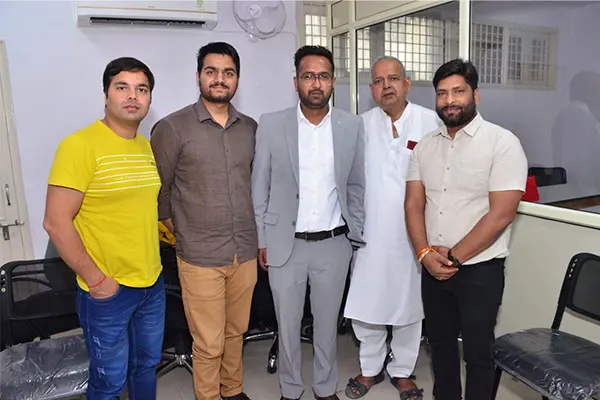Cyber Forensics Analysis Program
Our Cyber Forensics Analysis Program equips participants with the skills to investigate digital crimes. Covering forensic techniques, legal aspects, and practical exercises, this course prepares professionals to analyze digital evidence and contribute to cybersecurity investigations.
Book your Trial Demo Class
You can call us at +91 7428748577 | 7428748576
Cyber Forensics Analysis Program Course
Our Cyber Forensics Analysis Program offers comprehensive training in investigating digital crimes and analyzing digital evidence. Participants learn essential forensic techniques, legal considerations, and practical methodologies to conduct thorough cybercrime investigations. The course covers evidence acquisition, preservation, analysis, and presentation, with hands-on experience using industry-standard forensic tools. Through real-world case studies and practical exercises, participants learn to identify and analyze various types of digital evidence, such as deleted files, internet browsing history, emails, and chat logs. Additionally, the program addresses legal and ethical considerations, including chain of custody procedures and privacy laws. Upon completion, participants will be equipped to contribute effectively to cybercrime investigations, support law enforcement agencies, and enhance organizational security against digital threats. This course is suitable for cybersecurity professionals, law enforcement officers, IT administrators, and individuals interested in cyber forensics careers.
1.1 : Introduction to Computer Network
1.2 : Network Topologies and Types
1.3 : IP Addressing
1.4 : Subnet Mask, Subnetting and CIDR
1.5 : VLSM, Wild Card, Summarization
1.6 : Networking Models
1.7 : OSI Model
1.8 : Networking Device, Cabling, Network Simulator Tools
1.9 : ARP and ICMP
1.10 : Packet Flow
1.11 : Routing – Static and Dynamic
1.12 : Static Routing – Next HOP IP and Exit Interface
1.13 : Dynamic Routing - RIP, EIGRP and OSPF
1.14 : Remote Service Confriguration
1.15 : DHCP Configuration
1.16 : ACLs
1.17 : Switching
1.18 : L2 Protocols - CDP, VLN, STP, DTP, VTP
1.19 : Ether Channel
1.20 : Port Security
2.1 : Introduction to linux
2.2 : Setting Up Lab
2.3 : Exploring Kali
2.4 : Sudo Overview
2.5 : Navigating the file system
2.6 : Basic Commands
2.7 : Creating, Viewing and Editing text Files
2.8 : Managing users and Group
2.9 : Managing users and Group
2.10 : Linux Networking
2.11 : Process Management
2.12 : Services and Demos
2.13 : Log Analysis
2.14 : Archiving Files
2.15 : Debain Package Management
2.16 : Road Ahead – Towards Penetration Testing
3.1 : Introduction
3.2 : Set Up
3.3 : Variables and data types
3.4 : Numbers
3.5 : String formatting
3.6 : Booleans and Operators
3.7 : Tuples
3.8 : Lists
3.9 : Dictionaries
3.10 : Sets
3.11 : Conditionals
3.12 : Loops
3.13 : Reading and Writing
3.14 : User Input
3.15 : Exception and Error Handling
3.16 : Comprehensions
3.17 : Functions and Code Resuse
3.18 : Lambdas
3.19 : The Python Package Manner
3.20 : Python Virtual Enviornment
3.21 : Introduction to Sys
3.22 : Introduction to request
3.23 : Introduction to pwntools
3.24 : Projects
4.1 : Networking Refresher
4.2 : Linux Refresher
4.3 : Introduction to Information Security
4.4 : Introduction to Ethical Hacking
4.5 : Foot Printing / Information Gathering
4.6 : Scanning
4.7 : Enumeration
4.8 : Vulnerabilities Analysis
4.9 : System Hacking
4.10 : Malware and Threats
4.11 : Sniffing
4.12 : Social Engineering
4.13 : Denial of Service
4.14 : Session Hijacking
4.15 : IDS, IPS and Firewalls
4.16 : Hacking Web Servers
4.17 : Hacking Web Applications
4.18 : SQL Injection
4.19 : Hacking Wireless Network
4.20 : Hacking Mobile Platforms
4.21 : Introduction to IOT
4.22 : Introduction to cloud computing
4.23 : Cryptography and Steganography
5.1 : Introduction to computer Forensics
5.2 : Digital Investigation and analysis
5.3 : Concepts of Hard disk and File System
5.4 : Evidence Duplication and Extraction
5.5 : Counter Anti forensics Strategies
5.6 : Windows forensics Analysis
5.7 : Linux Forensics Analysis
5.8 : Mac Forensics Analysis
5.9 : Network Forensics Analysis
5.10 : Web Breach Forensics
5.11 : Dark Web forensics Analysis
5.12 : Data repository forensics
5.13 : Cloud Forensics and Analysis
5.14 : Email forensics and Investigation
5.15 : Malware Analysis
5.16 : Mobile Forensics and Analysis
5.17 : IOT Forensics and Analysis
6.1 : Introduction to Threat Hunting
6.2 : Introduction to Malware
6.3 : Mitre
6.4 : Cyber Threats
6.5 : Cyber Kill Chain Methodology
6.6 : Event IDS, Logging and Siem
6.7 : Requirements, Planning, direction and review
6.8 : Data Collection and Processing
6.9 : Data Analysis
6.10 : Intelligence Reporting
7.1 : Introduction and Process to Incident Handling and Response
7.2 : Proactive digital investigation preparedness and First Response
7.3 : Cyber Threat Handling and Mitigation
7.4 : Email Security Management
7.5 : Network Security Incident Response and Countermeasure
7.6 : Web App threat Response and Remediation
7.7 : Cloud Security Incident Management
7.8 : Insider risk mangement and repones

Ready to Start Your Career in Cyber Security Industry
Mobile Number : +91 7428748577 | +91 7428748576
Trending Courses
Contact Number:
+91 7428748577 | 7428748576
(175 Reviews)
(149 Reviews)
It covers a variety of topics, including network security, online application security, ethical hacking techniques, and penetration testing methodology.
Contact Number:
+91 7428748577 | 7428748576
Contact Number:
+91 7428748577 | 7428748576
(133 Reviews)
(142 Reviews)
Contact Number:
+91 7428748577 | 7428748576

Best Teaching

Convenient Practice

Video Lecture
We provide visual and auditory learning experiences, enhancing comprehension & engagement with educational content.

Live Classes
What People Say About Cyberyaan













